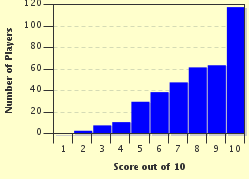Quiz Answer Key and Fun Facts
1. Henry Lawson wrote a hilarious short story called 'The Loaded Dog'. Which object, carried by that dog, caused the men in the mining camp to panic?
2. A sporting contest in the bush was always an entertaining event. In this poem by Thomas Edward Spencer, Pipers Flat were taking on arch-rivals Molongo. That day 'McDougal topped the score', leading the team from Pipers Flat to a famous victory. But what sport were they playing?
3. In which colonial novel by Ralph Boldrewood does narrator Dick Marston tell the story of the bushranger known as Captain Starlight?
4. Which poet, who penned Australian classics including 'The Man from Snowy River' and 'Clancy of the Overflow', also wrote the words to 'Waltzing Matilda'?
5. 'Kings in Grass Castles' is a wonderful account of the establishment of a pastoral empire in the Western Australian Kimberley region by an Irish immigrant, Patrick Durack, during the second half of the nineteenth century. Written by Patrick's grand-daughter, Mary, this book focuses on which rural industry?
6. In her most famous poem 'My Country', homesick Dorothea Mackellar wrote: 'I love a sunburnt country, A land of sweeping plains, Of ragged mountain ranges'. What is the next line?
7. A.B. Facey wrote an extremely popular autobiography in which he described the difficulties of growing up parentless in Western Australia, the horrors of the Gallipoli campaign of World War I, and losing his oldest son in World War II. Despite these grim tribulations, what cheerful title did he give to his book?
8. Written with great humor and capturing the vernacular of the day, 'On Our Selection' was a series of short stories published in 1899. The stories featured the Rudd family as they settled the land and came to terms with the sometimes harsh conditions of rural life. Along with Mother, which pair of characters formed the focal point of most tales?
9. The prestigious Miles Franklin Literary Award is named in honor of the female author of 'My Brilliant Career' - the 1901 novel about a girl growing up in impoverished rural Australia during the depression of the 1890s.
10. In 'For the Term of his Natural Life', one of the best-known novels about convicts in Australia, Marcus Clark told the story of Rufus Dawes, a young English gentleman, sent to Van Diemen's Land for a murder he did not commit. In which Australian state does most of this story unfold?
Source: Author
MikeMaster99
This quiz was reviewed by FunTrivia editor
looney_tunes before going online.
Any errors found in FunTrivia content are routinely corrected through our feedback system.

